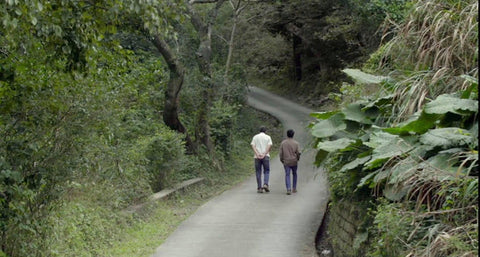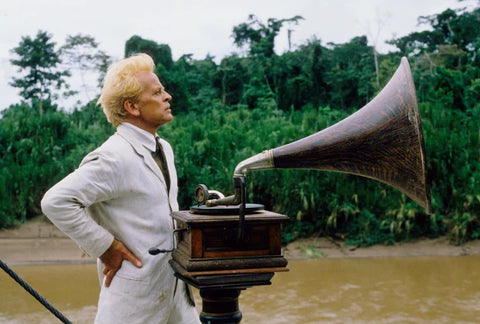
Lately, I’ve been dreaming more often than usual. One dream, in particular, was about my mother.
The knot between my mother and me is a complicated one, something not easily unravelled in a few lines. It’s tangled because she was absent during much of my childhood and because, with our equally stubborn temperaments, there are too many words left unsaid, locked away inside.
Of course, my father was absent too, first from my childhood and, later, from my youth and life entirely. But he was easygoing, the gentler one between them, the "good cop" of the family. When my mother wasn’t around, conversations with him were lighter, freer. I remember one day he said to me, “When I’m gone, take care of your mother. She’s sacrificed so much for us.” Just a few days later, he passed away. I’ve never known if he had some inkling or if it was simply coincidence.
Being raised by my grandparents, I was always more their child in the eyes of our relatives. At my grandmother’s funeral, the floral wreath I sent was placed beside those of my mother and aunts. My mother likely felt the same way; sometimes we were like mother and daughter, sometimes like sisters—not the kind of sisters who confide in each other, but the kind who compete, silently and relentlessly. As a mother, she wanted me to succeed; as a "sister," perhaps my small achievements left a bitter taste for her. It must have been exhausting for her too.
When my father died, I threw myself into earning money. I couldn’t run the household just yet, but I could at least stop being a financial burden. I managed that much. And yet, during the summer after graduation, while still jobless and searching, she said to me, “You’re living off me, and you don’t even have a job?” That was the most cutting thing anyone had ever said to me, especially coming from the one person I needed support from the most. When I did land a job, her attitude softened overnight, the stark contrast jarring for someone as sensitive as I was. Was I only worthy of her care when I was successful? That’s how I felt then.
There’s so much I’d rather not recount—so many small, painful moments that words can’t fully capture. One day, over a year ago, I simply told her I was moving out. I didn’t look back.
But in my dream, I returned home. I had left with little more than a suitcase, but the journey back felt heavy and long. She wasn’t surprised to see me. “This has always been your home,” she said. “You just went out to play for a while.” In her usual way, she didn’t ask if I was okay, and in my usual way, I didn’t volunteer anything.
She went straight to the kitchen and made a meal. Suddenly, I was back to having warm dinners and soups, back to a life where I didn’t have to do chores. These things felt all the more precious now that I’d learned to fend for myself.
Last year, a piece of writing by a young student in Beijing went viral. In it, they wrote, “May you own high heels but still wear sneakers. May your heart bear no scars, your tears be of joy. May you find a tree to lean on when you’re tired. May you learn to let go, walk lightly, and return, having lived half a life, still a child at heart.” I used to think returning as a child meant keeping one’s innocence. Now, I understand it also means having a home to return to. Without that, childhood is lost forever.
I ate, and I cried. “It’s all right. Everything will be okay.” That’s what my father would have said if he were there.
And then I woke up.
On a separate note, I recently watched White Ant. I was struck by how quietly and deeply it resonated with me. Its simplicity and rawness brought back memories of my hometown, my parents’ expectations, and my own dreams. I don’t think I’ll ever forget the scene of the protagonist walking with his father—the slow rhythm of their steps, their understated conversation. It was oddly comforting.
On the subject of walking, I’m reminded of a line from Kore-eda Hirokazu’s book At the Speed of Walking: “Perhaps it’s because of imperfection that the world is so rich and full of colour.”
That’s all for now.
Let’s end with Damien Rice’s Long Long Way:
“It’s a long way back if you get lost.”


